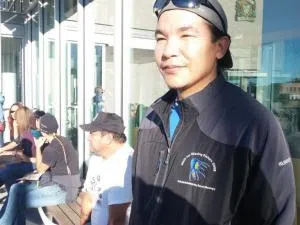
Judge rules against mistrial in Saskatoon murder case
A judge rejected a defence motion for a mistrial in the case of Douglas Hales.
Justice Gerald Allbright delivered his decision Monday afternoon in Saskatoon Court of Queen's Bench.
Defence lawyer Bob Hrycan spent Monday morning arguing for Hales' previous month-long trial for the murder of Daleen Bosse to be thrown out and followed with fresh proceedings.
In a situation that both the defence and the Crown acknowledged was unheard of in Canadian law, Hales' trial happened to be in process right as the Supreme Court delivered a ruling that fundamentally changed rules of evidence that apply to his case.


